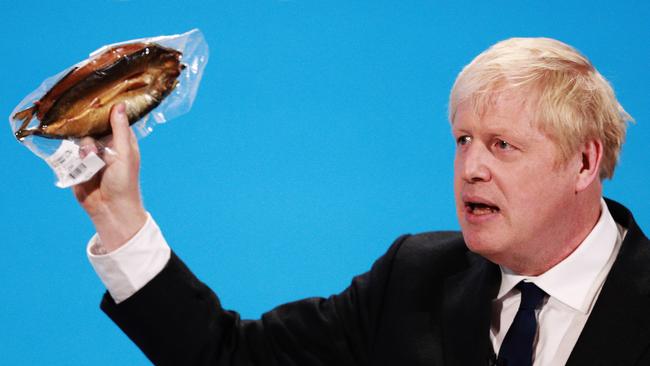Will ‘chairman Boris’ Johnson revive cabinet government?

The reality, however, is that a clique in No 10 always ends up controlling the government. Gordon Brown made a fuss about bringing back cabinet government to try to differentiate himself from Tony Blair. Brown says he failed to do so. He tried to do everything himself, with mixed results. David Cameron emphasised how he would govern in the traditional manner. Coalition meant the country ended up being run by a quad made up of Cameron, Liberal Democrats leader Nick Clegg, chancellor George Osborne and Lib Dem cabinet minister Danny Alexander. Even when the Tories won a majority in 2015, Cameron did little to resurrect a more formal style of government.
Theresa May restored the form of cabinet government, but not the substance. Even as her premiership draws to a close, cabinet meetings often go on for three hours as she ensures that everyone has their say. But the really big decisions have continued to be taken elsewhere. The red lines May set out for the Brexit talks were decided well away from cabinet. The 2017 Tory manifesto was launched with almost no one in her cabinet having seen the whole document.
Boris Johnson has not made a big song and dance about bringing back cabinet government. But unlike so many of his predecessors, he really might do it. As one of those who knows him best puts it: “His natural approach is to delegate, to let other people do things.” He is the opposite of a micromanager. The leadership contest has been a reminder that Johnson is not really a details man either. He appears nervy when pressed on facts. As prime minister, his best way of dealing with such questions will be to set out the bigger picture, while referring the detail to the relevant cabinet minister.
Such an approach can only work if these ministers are not just placemen, but are actually in charge of their departments. This places a premium on competence (not a criteria that every prime minister insists on). The government needs ministers who won’t have to have their hands held by No 10 and are capable of handling a brief. Given how Brexit will consume No 10 and its energies, these ministers will have to put meat on the bone of Prime Minister Johnson’s domestic agenda.
If a Boris government does intend to let a thousand flowers bloom, there will be problems. No 10, as an institution, likes being in control. The prime minister gets the blame when things go wrong and ministers hog the credit when they go right. This tendency will be exacerbated under Johnson by the fact his cabinet will be stuffed full of leadership contenders.
Johnson’s age and vintage — he is 55 and first entered parliament in 2001 — means a large chunk of the cabinet will have their eye on succeeding him as Tory leader. There’ll be those around No 10 who’ll say loosening the reins will simply allow his potential successors to push themselves forward.
Johnson should be relaxed about this, though. He is such a big personality that he isn’t going to be overshadowed by any minister. When he was London mayor, he trusted in a set of deputy mayors — who were often more responsible for the successes than he was. However, Boris’s pull meant that everybody talked about him.
Proper cabinet government doesn’t just mean letting ministers do their jobs. It also requires all major decisions being taken in cabinet. This is harder to do now there are so many ministers: 29 sit around the cabinet table today. Such size makes proper discussion difficult: would you invite 20-odd people to a meeting and expect them to come to a conclusion?
If a cabinet is to serve its proper function, it must be representative of the governing party — and not just one faction of it. This will mean there will be arguments before an agreement is reached. However, this process means its collective decisions are more likely to bind the rest of the party.
One can make many criticisms of May. But she cannot be accused of failing to work hard enough, nor of lacking attention to detail. Her failure demonstrates the need for a different approach to the job, one that is more akin to a chairman of the board than a chief executive. This is the approach that would suit Johnson best.
But it means that when he chooses his first cabinet, in a few days’ time, he will have to be a meritocrat rather than a leader who just rewards his old pals.
The Spectator



It has become something of a tradition in British politics: an incoming prime minister promises to restore proper cabinet government. They vow to go back to the good old days of NHS policy being run by the health secretary, schools policy by the education secretary — and decisions taken in open discussion with a prime minister who is first among equals.